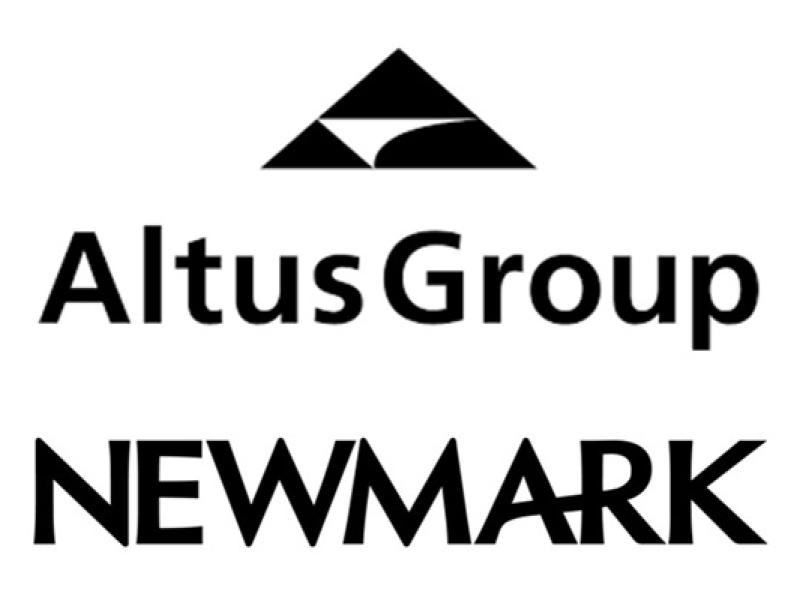It’s always useful to get perspective on the outlook for commercial real estate by engaging in a dialogue with an industry-leading broker. And by the same token, there’s abundant value in talking with landlords at the top of their game.
But if you’re looking for truly well-rounded insights into the future of our sector, it may just be that the best source would be an executive who has done both and has excelled in leasing and asset management.
That’s one reason why VTS is fortunate to count Jonathan Pearce of Ivanhoé Cambridge as a client. As one the most highly regarded real estate professionals operating from a base in Toronto – where the metropolitan area numbers some six million people – Jonathan has found success on both sides of the property equation.
Upon rising to a position of leadership after 20 years as a commercial real estate broker, Pearce then chose to move into the world of development and investment by joining Ivanhoé Cambridge four years ago. He now serves as Ivanhoé Cambridge’s executive vice-president of leasing for office and industrial across North America.
Jonathan’s job is not a small one. The firm’s assets presently comprise more than 60 million square feet of office and industrial space in markets including Montreal, Toronto, Chicago, Seattle, Dallas, New York, Los Angeles, Houston, Boston, and a dozen other metro centres around the continent.
I had the opportunity to sit down with Jonathan and get his thoughts on what’s next for commercial real estate.
Pearce’s vision for the industry’s future? A heightened emphasis on agility.
“We deal with large tenants. We deal with small tenants. We have multi-market tenants. The same sorts of words and phrases keep coming back like ‘flexibility’ and ‘hub and spoke.’
“A lot of tenants view their head offices and critical facilities as facilities they want to see on a long-term lease or ownership,” he says. “But for the most part, on the other premises, they are increasingly wanting agility. They want flexibility and shortened lease terms. They don’t want to fund massive capital outlays for leasehold improvements.”
He especially foresees “heightened change” for smaller leasing transactions.
“Where I see it completely changing is the Airbnb model, where anyone can rent a condo in Florida for the weekend,” he predicts. “I think that same thing will happen when you sign a lease for office space. You’re effectively going to see the automation of the leasing process to some extent, likely predominantly for the smaller or more-straightforward lease requirements.”
When I asked Jonathan to name the most-important KPI a leasing broker or operator might start tracking, he singled out flexibility in lease term.
But if flexibility is everything, and if leases get shorter, how will that affect broker fees?
“I think with the non-strategic facilities, you’re going to see a trend toward shorter-term leases,” he replied. “It’s definitely going to impact broker comp. These smaller spaces are going to be shorter commitments and maybe the fee structure will change.”
And take note: Jonathan Pearce is no technophobe.
“Look at the retail business,” he said to me. “There’s a whole industry that has arguably let e-commerce take them by surprise.
“The office landlords have seen that movie and they’re trying not to follow suit. I’m always pushing our team: ‘Can we do it better? Can we do it quicker? Less process? More automation?’ ”
Staying ahead of the curve and educating executives on where the industry is headed – and where Ivanhoé Cambridge needs to be – has become a key part of Jonathan’s role.
Jonathan must present his leasing teams with the best technology and embrace tools that optimize the leasing process and help enhance performance – whether it is leasing and asset management software like VTS, or flexible office space like LiquidSpace – which will help them prepare for the future and prevent the company from being left behind.
“They’re taking comfort that there’s somebody out there on the business side of thing who’s thinking about ‘how do we best position ourselves for the future?’ because our success is based on being able to continually fund that pension liability going forward. So we’ve got to stay ahead of this.”
Reflective of the magnitude and geographic scope of his portfolio, one challenge Jonathan faces as a landlord is a “vast inconsistency of brokerage talents.”
“I expect a certain standard from my brokers,” he says. “And as a result, I have to develop relationships at the grassroots level with best-in-class, local broker partners. To me the ‘one-size-fits all’ solution doesn’t work. One brokerage might be really strong here, but really weak in another market.”
Zeroing in on the best local talent, he says, benefits Ivanhoé Cambridge’s bottom line.
“We’re much more nimble as we buy and sell investments, as opposed to having a significant in-house leasing team and carrying all that G&A,” he told me. “We can now optimize the size of our leasing representation as the scale of our portfolio changes. If a performance issue arises, we can rotate talent accordingly.
“We leverage our partners like Hines, and Beacon, and also our brokerage partners to help us not make those missteps in the markets themselves.”
Pearce also added: “By having significant in-house teams, it can make it more challenging to scale in lock step with needs of the business; as well (it) can create an environment where people become defensive of their turf and avoid transacting to lessen impact to employees and colleagues, rather than prioritizing making the right investment decisions.”
And the record shows Pearce has been deft at rising to a range of leasing-related challenges — indicating his brokerage roots serve him well in his more recent role as landlord. His broker background has allowed him to bring a valuable dose of tenant empathy to the job.
“We’re not operating office buildings,” he says. “We’re operating five-star hotels that have office space. The tenants are our valued guests or customers. The tenant experience matters more and more.”







